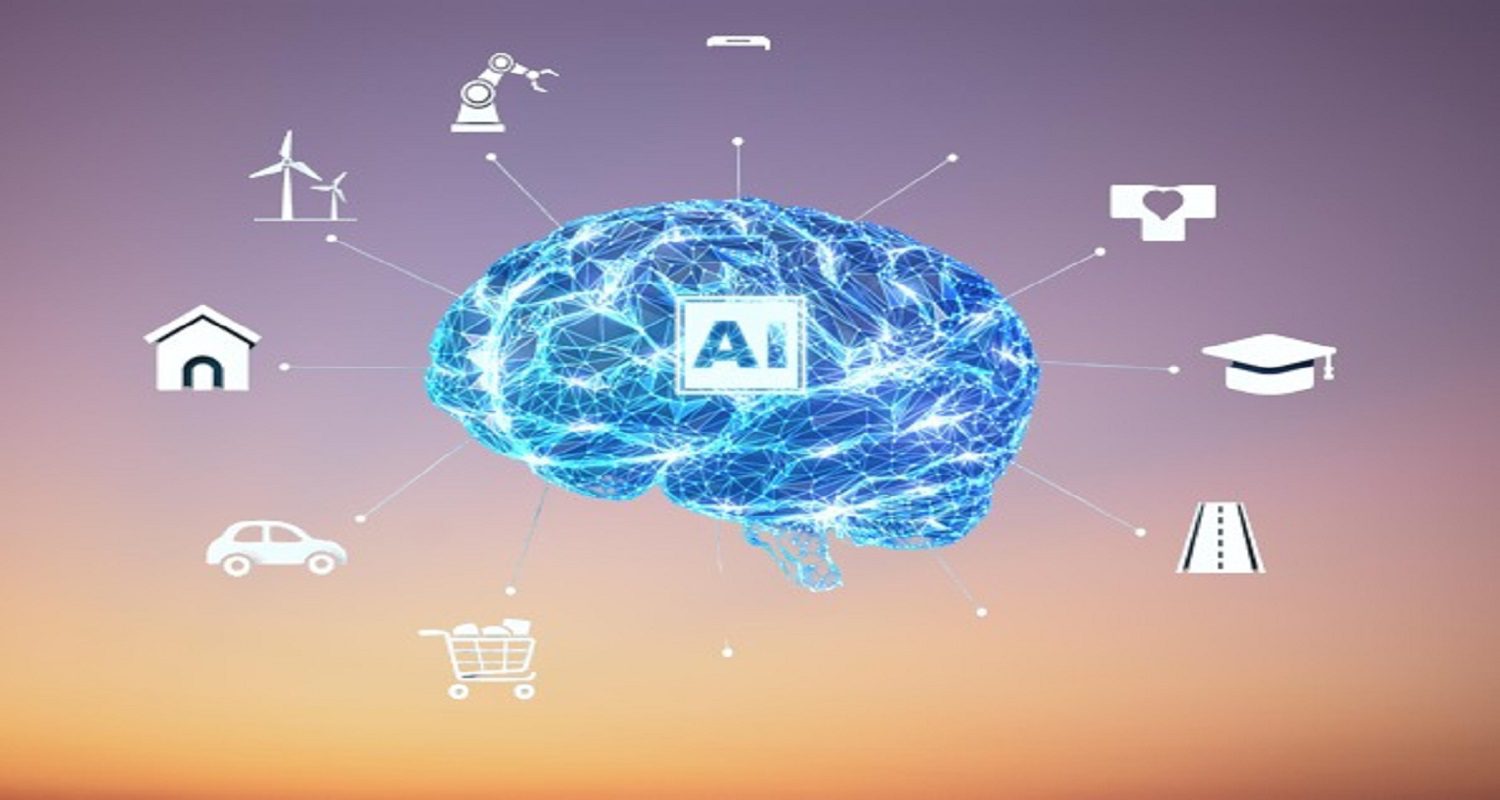The Realm of AI: In the dynamic realm of technology, artificial intelligence (AI) reigns supreme, and it seems the industry’s power players are fully aware. Google, Microsoft, and Meta, formerly known as Facebook, have taken center stage in the AI conversation, far surpassing Apple in their enthusiasm for this cutting-edge technology.
AI’s generative capabilities have captured the attention of these tech titans, as they aspire to create AI systems that write, draw, and code with human-like precision. The CEOs of Alphabet and Microsoft, Sundar Pichai and Satya Nadella, have been vocal about AI, mentioning it an impressive 66 and 47 times, respectively, during discussions on their companies’ latest developments. Likewise, Mark Zuckerberg and his Facebook colleagues jumped on the AI bandwagon, using the magic phrase 42 times in a single day, as reported by CNBC.
However, Apple appears to be taking a different approach, as their upcoming earnings announcement does not include any mention of AI. Despite this silence, Apple has been steadily incorporating AI into its products, as demonstrated during previous earnings calls. CEO Tim Cook touched on AI twice in May, but surprisingly refrained from using the term during the June software announcement event, despite showcasing AI-based features.
Internally, Apple managers recognize the potential of machine learning and how it enhances their software capabilities. Employees at the tech giant have harnessed AI to organize photographs, streamline typing, and facilitate filling out PDF forms. Apple is unequivocal in its belief that computers need AI now, not in the distant future. Their approach to AI may be subtle, but their conviction is unwavering.
Meanwhile, Meta, Microsoft, and Google executives are actively exploring AI’s potential in cloud services and developer tools. Meta’s investment in the LLaMA language model opens doors for AI-driven social media applications and online advertising. Microsoft’s CoPilot, featuring OpenAI’s ChatGPT, integrates AI language and coding capabilities into Word, PowerPoint, and more, available at a cost of $30 per month.
With high market values at stake, investors are curious about AI’s impact on these companies’ bottom lines. Microsoft’s Nadella and CFO Amy Hood assured investors that CoPilot would be gradually integrated, anticipating potential effects on sales in the coming year. Google’s Pichai is optimistic that AI-generated text will revolutionize searches and address challenges beyond conventional search domains.
However, as with any innovative technology, AI faces its own hype cycle. While businesses experience a peak of inflated expectations, the subsequent trough of disillusionment eventually gives way to the technology’s true potential. Investors and industry experts understand that AI requires both time and financial investment to reach its full capabilities.


READ MORE: Facebook Algorithm: Decoding the Enigma Holds Power Over Your Beliefs
Undeniably, AI is a game-changer, with Nvidia’s stock surging 220% due to the use of its graphics computers in technology. Startups and cloud service providers have also embraced AI, further propelling its advancement.
Despite the transformative potential of AI, user adoption remains a challenge. OpenAI’s iPhone app has experienced a decline in users since May, highlighting the need for continued development and refinement. However, analysts remain optimistic that early demand will pave the way for larger AI systems and increased revenue in the future.
As the AI race continues, industry analysts offer valuable advice to investors. For Meta, they suggest focusing on the growth of Metaverse, Reels, Threads, Quest, and Generative AI to maximize returns. Meanwhile, Google’s creative AI may face challenges, necessitating further development to fully realize its potential.
With Apple rumored to be working on a ChatGPT-like language model, their future AI aspirations will undoubtedly be a topic of interest during their upcoming earnings announcement. Apple’s foray into AI is already evident, as they recently introduced GPT-like capabilities in their iPhone keyboard software.
While the tech giants march forward, AI’s integration into products remains a careful and deliberate process, guided by the vision of these industry leaders. As AI continues to shape the tech landscape, its transformative power and boundless possibilities leave the world eager to witness the next chapter of innovation.
Also Read: AI in the Tech Industry: Unveiling the Strategies of Tech Giants
Our Reader’s Queries
What is realm AI?
Immerse yourself in Realm, the vibrant hub where your thoughts and ideas spring to existence. Connect with like-minded artists, delve into the world of generative AI, and showcase captivating visual narratives. Explore the possibilities at https://www.joinrealm.ai/ to experience the cutting-edge technology, information, and internet culture.
How long before AI takes over the world?
The findings of a recent survey suggest that there is a 50% likelihood of AGI (Artificial General Intelligence) emerging by the year 2060. Interestingly, opinions vary significantly based on geographic location. Respondents from Asia anticipate the arrival of AGI within 30 years, while those from North America believe it will take 74 years for AGI to become a reality.
Can AI overtake humans?
AI excels at analyzing large data sets and detecting patterns that may elude human perception. However, it cannot replicate the unique insight and creativity that humans bring to decision-making. It’s essential to recognize that AI serves as a tool to augment human intelligence rather than replace it.
Will AI become self aware?
Long asserts that the potential for AI to achieve consciousness in the near future justifies further exploration and readiness. He emphasizes that the 14 indicators for AI consciousness may be subject to modification as research progresses. Long expresses hope for ongoing efforts to scrutinize AI consciousness.

